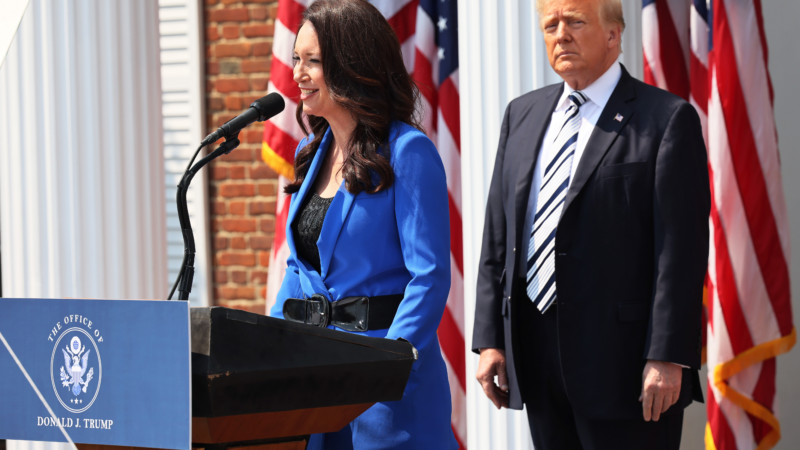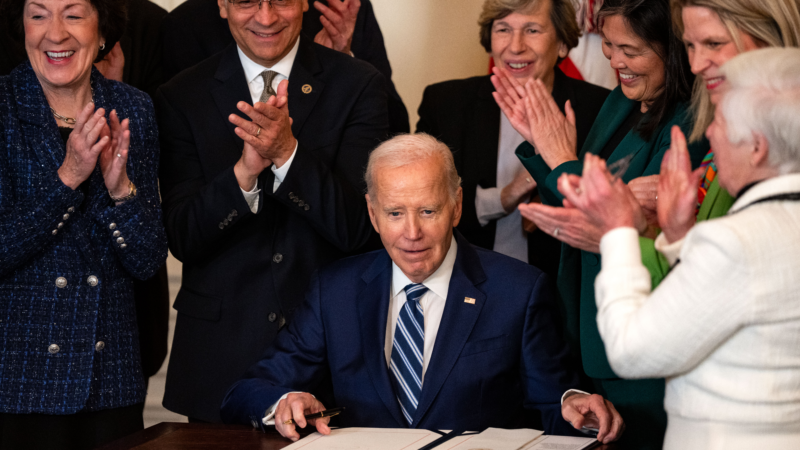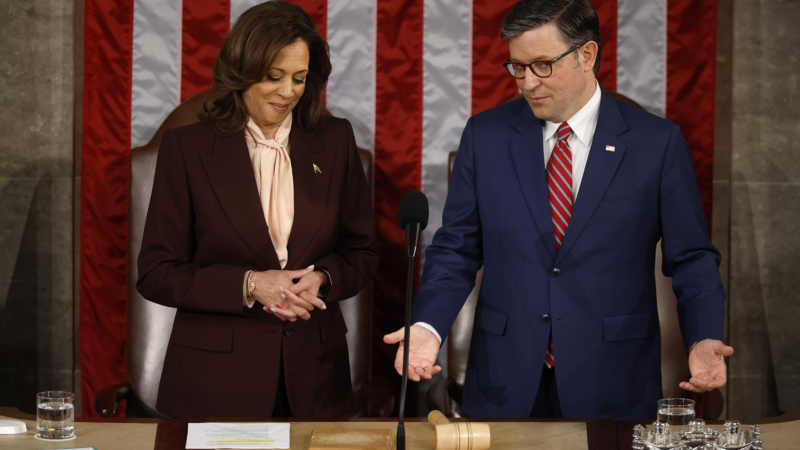Trump taps Brooke Rollins of America First Policy Institute for agriculture secretary
President-elect Donald Trump has tapped Brooke Rollins, president and CEO of the America First Policy Institute, to oversee the Department of Agriculture, one of the most sprawling federal agencies.
Rollins was previously the director of the Domestic Policy Council during the first Trump administration. She has a long history in conservative politics, including also running the Texas Public Policy Foundation.
Originally from Texas, she graduated from Texas A&M University with a degree in agricultural development. She then got her law degree at the University of Texas school of Law.
During the first Trump administration, Rollins also served as assistant to the president for intergovernmental and technology initiatives. After leaving the White House, Rollins was among a group of senior advisers to create the new nonprofit group aimed at promoting Trump’s policies.
As the new head of USDA she would oversee nearly 100,000 employees, and would oversee the Supplemental Nutrition Assistance Program, which makes up over half of its nutrition budget, as well as the Supplemental Nutrition Program for Women, Infants, and Children (WIC) and school meal regulation. She would be the second woman to lead the department, following Ann Veneman who served under President George W. Bush.
The department could be at the front lines of Trump’s efforts to trim what he calls the “deep state” of federal bureaucracy and his efforts to implement tariffs on foreign goods — though it also provides crucial assistance to farmers and rural areas.
The department distributes agricultural subsidies and is the first stop for farmers to receive financial assistance for their operations. USDA is also the only agency with a rural development branch that distributes federal broadband, housing and utilities programs to rural communities.
The first Trump administration had to address the consequences of Trump’s trade war with China and others, which resulted in retaliatory tariffs on U.S. agricultural products leading to decreased farmer profits. The federal government did step in with some assistance to boost incomes due to the trade war, and then the COVID-19 pandemic.
It is possible Trump could also sign a second farm bill into law, a potentially trillion-dollar bill reauthorized every five years to provide farmer safety nets, programing, rural development and government nutrition assistance. The last farm bill was signed by Trump in 2018 and Congress has since failed to reauthorize it.
SNAP is estimated to serve 42 million participants each month with food benefits, and WIC serves about 40% of all infants in the United States. Making changes to the safety-net programs has been one of the sticking points for the legislation, in addition to its funds for conservation programs.
Adrien Brody dedicates Golden Globes win for ‘The Brutalist’ to his immigrant family
The post-war epic was nominated in several categories. Like Brody's real-life mother, Brody's character is an immigrant from Hungary who fled conflict.
Biden makes an 11th-hour move to block coastal oil drilling
President Biden has issued an executive order blocking drilling for oil in more than 625 million acres of U.S. ocean. It's the largest such move in history, but is almost guaranteed to be challenged under the incoming Trump administration.
U.S. transfers 11 Yemeni prisoners from Guantánamo to Oman
The Biden administration's move leaves just 15 detainees at the U.S. military prison at Guantánamo Bay, Cuba. Oman will help resettle the men and provide security monitoring.
Hamas and Israel are negotiating the release of 34 hostages from Gaza
The deal would secure release of a third of the approximately 100 hostages who remain in Gaza, including two dual U.S.-Israeli nationals. In return, Israel would release some Palestinian prisoners.
Millions of public workers are set to get higher Social Security benefits. Here’s why
Public service workers, including some teachers, firefighters and police officers, may soon see their Social Security payments increase by hundreds of dollars monthly.
Under the shadow of the Jan 6. 2021 riot, Congress certifies the 2024 election
Four years after the riot at the Capitol, Congress meets under heavy security and a blanket of snow to certify the 2024 election.






